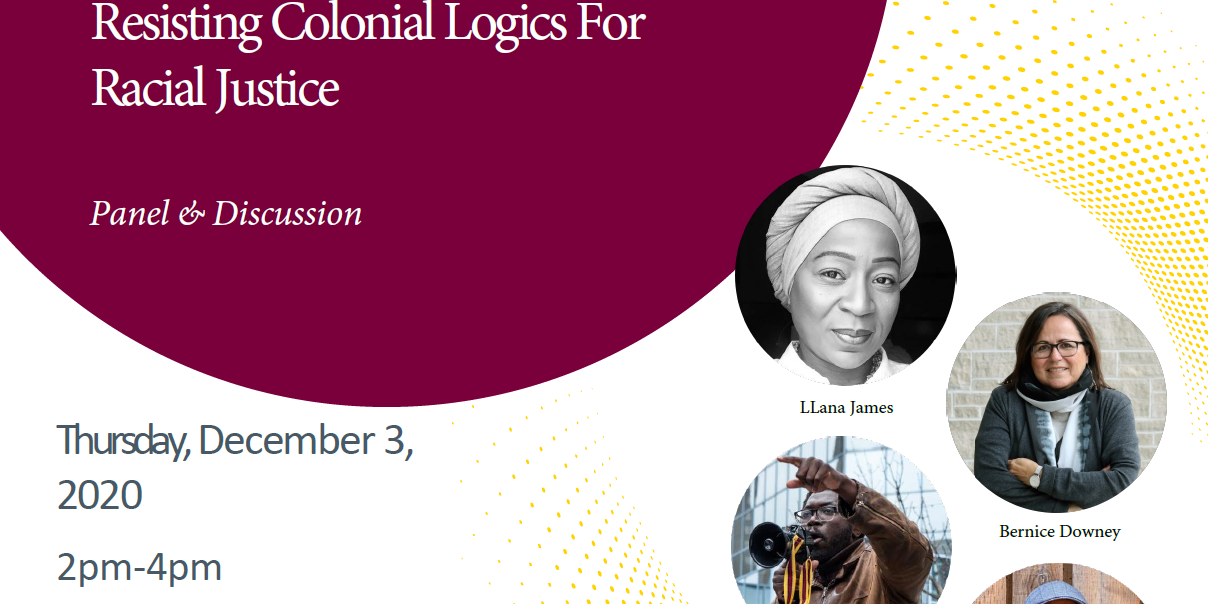Description
Recent attentions to the collection, use, dissemination, ownership, and impacts of demographic data have convened several historical contradictions, resurfacing the contours of the false promise of equity from quantitative data collection. COVID-19 has positioned a number of initiatives that claim to address injustice and inequities in health or elsewhere though data collection often without the needs of those mined for data at the centre of these conversations. Regularly, these data are on or about Black, First Nations, Métis, Inuit, Latinx, Asian, South Asian, Caribbean, and other non-white groups, people living with mental health issues, disabilities, those who are houseless or underhoused, low-income, people living with substance use needs, and 2SLGBTQ+ populations while also collecting information on gender. These initiatives that collect and do not deliver have not gone uncontested.
Event Details
December 3, 2020
2:00 – 4:00 pm
Register: https://libcal.mcmaster.ca/calendar/scds/data-and-sovereignty
Presentations
Gikendamaawin e-aabadak – use of information: an Indigenous perspective on data sovereignty
Bernice Downey, Ph.D. Assistant Professor, School of Nursing/Department of Psychiatry and Neuro-Behavioural Sciences, Director, McMaster Indigenous Research Institute
Addressing hate/hate Crimes/hate incidents through communal frameworks
Kojo Damptey, Hamilton Centre for Civic Inclusion (Executive Director)
Data colonialism and plantation logics in social services, and public health
Ameil Joseph, Ph.D. Associate Professor, School of Social Work McMaster University
KEYNOTE: Data, deception and dispossession: Breaking the cycle of colonization and racial capitalism in Canada’s public health & health care systems
LLana James, Ph.D.(Cand), Faculty of Medicine, University of Toronto, rede4blacklives.com
